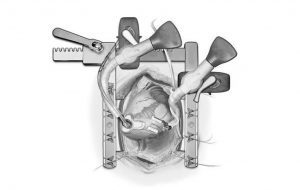
Heart surgery is not only a serious surgical intervention but also a vital process that requires patients to act consciously both before and after. The pre-surgery preparation and post-surgery recovery process are of great importance for patients undergoing cardiovascular surgery. Acting consciously during this process both increases the success of the operation and makes the recovery period more comfortable. In this article, we discuss in detail all the stages that need attention from before heart surgery to after discharge.
Pre-Surgery Process
After the decision for heart surgery is made, it’s important to prepare patients both physically and emotionally.
Frequently Asked Questions by Patients
The most frequently asked questions in the pre-surgery period are:
- “How long will it take me to recover?”
- “When can I return to work?”
- “What should I pay attention to after the surgery?”
The answers to these questions vary depending on the type of surgery and must be explained by the doctor in a personalized manner.
Anesthesia Evaluation
After the decision for surgery is made, the first step is the evaluation by the anesthesiologist:
- General health condition is analyzed.
- Blood tests and examinations are performed.
- The type of anesthesia to be applied and its risks are shared with the patient.
Preparation for Surgery: Lifestyle and Medications
It’s important for patients to prepare themselves for planned surgeries:
- Smoking should be reduced or completely quit.
- Diet should be reviewed; vegetables, fruits, whole grains, and low-fat foods should be preferred.
- Medications used, especially blood thinners and blood pressure medications, should be reported to the doctor.
It’s common to be admitted to the hospital the night before surgery. However, for some vascular surgeries, arriving on an empty stomach on the morning of the surgery may be sufficient.
Post-Surgery Process
The period after heart surgery is critical for recovery.
First Days in the Intensive Care Unit
- After surgery, the patient is connected to a ventilator.
- They are awakened in a controlled manner within 6-8 hours.
- Heart and body functions are closely monitored.
- Patients in stable condition are transferred to the ward the next day.
- The first walk in intensive care is usually recommended.
Recovery Process in the Ward
The process is more comfortable for patients transferred to the ward, but active participation is required:
- Moving and doing breathing exercises is necessary.
- Doctor’s recommendations should be carefully followed.
Drains and Pain Control
- Drains are usually removed within 1-2 days.
- The drain removal time may be shorter for patients who are mobile.
- Pain is expected but can be controlled with prescribed medications.
Discharge and Recovery at Home
Patients are usually discharged within 5-7 days after heart surgery.
Things to Consider at Home
The first 2-3 weeks at home are sensitive in terms of infection risk:
- Do not accept visitors or limit them.
- Pay attention to personal hygiene rules.
- Protective medications should be used regularly.
Factors That Increase Success After Heart Surgery
Adopting a healthy lifestyle after surgery is essential for long-term success:
- Do not smoke.
- Eat healthily.
- Include physical activity.
- Don’t miss your doctor’s check-ups.
- Take your medications regularly.
Heart surgery is a treatment method that can be successfully completed with proper preparation and appropriate care. Every stage from the anesthesia process to physical activities in the ward, from discharge to hygiene measures at home, should be carefully managed. When the rules are followed, heart surgeries can provide both effective and safe recovery.
